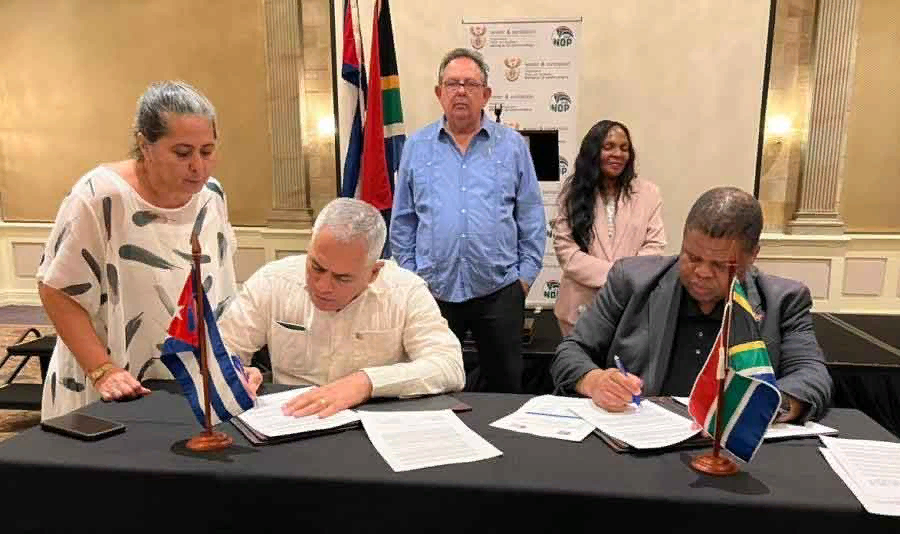Authorities from Cuba and South Africa reinforced in Pretoria collaboration regarding water resources as they celebrated 20 years of bilateral cooperation in the sphere.
Both parties agreed to expand collaboration in the future and take it to other areas that include infrastructure investment and planning. They also agreed to work together on the development of so-called green energy, including hydroelectricity, as well as addressing climate change and its impact on infrastructure and national disaster management.
The final statement signed by David Mahlobo, first deputy head of the Ministry of Water and Sanitation of South Africa, and Bladimir Matos, vice president of the National Institute of Hydraulic Resources of Cuba, establishes a Joint Working Group to develop a new agreement that covers the period 2025–2030.
According to Lázaro González, coordinator of the Cuban brigade, the island’s specialists are currently working on South African lands in the operation and maintenance of pumping stations and systems, as well as in reservoirs associated with electricity generation, mining industries and food production.
After signing the agreement, the parties recalled how its founding fathers, President Nelson Mandela and Commander in Chief Fidel Castro, demonstrated a spirit of brotherhood corresponding to the historical bilateral relationship strengthened during the meeting.
Mahlobo thanked the Cuban people for the sacrifices made in the fight for the independence of South Africa, and highlighted how the Cuban people provide humanity with resources and services in the fields of science, engineering and health. He also called for an end to the US economic, commercial and financial blockade on Cuba.
For his part, Matos thanked the South African government for its support and its repeated calls for the lifting of the blockade and unilateral sanctions against the Cuban people.
Both sides highlighted how the meeting took place during a time of global strife and conflict, and called for a resolution through negotiations using the multilateral institutions of the United Nations.


